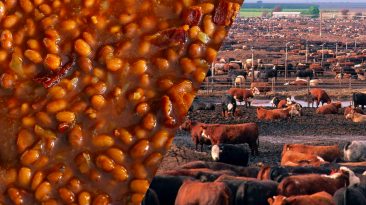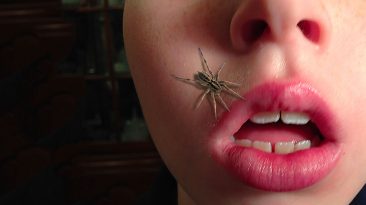Hippos are large, loud, and dangerous. They kill 500 people a year in Africa, and their attacks are vicious. So if you’re around one, keep your guard up. And don’t be fooled by its big, cute face.
That hippo might be hungry. Do hippos eat meat? What warning sign should you watch out for? Could your whole body fit in its mouth?
These water-loving creatures can grow up to 5 m long (16.5 ft), and they weigh up to 4,500 kg (9,920 lb). It takes a lot of energy to carry all that mass around, so these hungry hippos have to eat 35 kg (80 lb) of food every night.
Luckily, they’re herbivores, for the most part. There have been reports of hippos eating carrion, but they’re rare. Humans are definitely not in their diet. But that doesn’t mean you can relax around hippos. They’re incredibly aggressive. And there’s one warning sign that you should never ignore
If you see a hippo open its mouth in a yawn or laugh, you’re in trouble. This is a sign that it’s going to attack. You think I’m going to tell you to run? Sorry, but hippos can charge at up to 30 k/h (18 mph).
And sometimes, there’s no warning at all. Hippos will often glide underneath a small boat, flipping it and throwing its passengers into the water. Once you’re in the water, your chances of surviving are slim.
But could a hippo swallow you whole? While they’re big animals, a hippo wouldn’t be able to consume you in one bite.
Instead, you’d feel intense pressure as the hippo begins to crush your arms or legs with its teeth. You punch the hippo right in the nose, and it loosens its grip on your body. But although you manage to break free, you’re in bad shape.
There are huge holes in your side from its tusks. Parts of your body are unrecognizable. And you’re missing an arm. That arm is still in the hippo’s mouth. Now while you’re being rushed to the nearest hospital, what happens to your missing limb?
Hippos have a unique digestive system. They have three stomach chambers, and they use a method called foregut fermentation. Microbacteria living in hippos’ stomachs break down food early in the digestion process.
It’s a symbiotic relationship that allows hippos to get the most nutrients out of tough grasses. So, after your arm travels down the hippo’s throat, and goes into the first chamber of its stomach, microbacteria would begin to break down your arm.
Then your arm would pass on to the true stomach. This is where digestive enzymes would continue to break it down. Later, the hippo would fling remnants of your arm, and some grass, over the beast’s territory.
Hippos can spread their feces up to 10 m (33 ft) around them. This plays an important role in the rivers and lakes of Africa. By eating and excreting grass, hippos add silicon into Africa’s water systems. And that’s good because unicellular algae need silicon to thrive. The algae produce oxygen, and it’s a key part of the food web.
Hippos are extremely territorial. And they’re obsessive about protecting their young. So while baby hippos sure are cute, you should always steer clear of them. Most attacks happen because mother hippos see humans as a threat to their offspring. And hippos aren’t the only animal you’ll have to worry about in Africa. The Nile crocodile is another aggressive beast, and it attacks over 300 people every year.
Sources
- “Facts About Hippos | Live Science”. Bradofrd, Alina. 2021. livescience.com.
- “Hippos, The Animal Silicon Pumps: Via Their Feces, Hippos Transport Large Quantities Of Silicon, An Important Substance For Ecosystems, From Land To Water”. 2021. Sciencedaily.
- “What Type Of Digestion Do Hippos Have?”. 2021. southafrica.co.za.
- “Why You Should Beware A Laughing Or Yawning Hippo”. Ogden, Lesley. 2021. bbc.com.
- “American woman attacked by hippo after boat capsizes on Zimbabwe wildlife tour”. Julia, Jacobo. ABC News.
- “‘I Was Swallowed By An Angry Hippo And Ripped Apart But Miraculously Survived'”. Kitching, Chris. 2019. Mirror.
- “Experience: I Was Swallowed By A Hippo”. 2013. The Guardian.


















